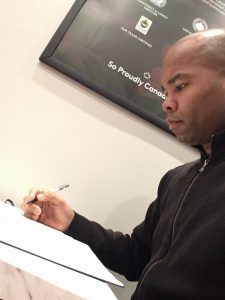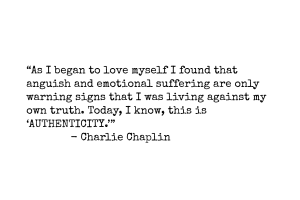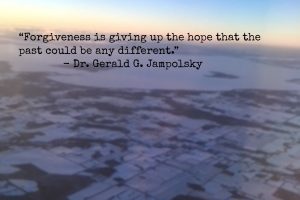“Is this seat taken?”
Todd, leaning back and staring blankly at the blue sky through his sunglasses, brought himself forward. His gaze fell on the grey-haired man already lowering himself down onto the other end of the forest green bench. “No,” he said, rising to offer assistance.
“I’m okay,” the stranger said, but gripped his trembling hand to Todd’s arm to steady himself. “These bones don’t work like they did when I was your age.”
Todd smiled thinly as he sat back down. He closed his eyes and drew in several deep breaths. He thought being here — on this bench and listening to the birds sing their repertoire — would soothe the pain in his heart. His chest tightening proved he was wrong. He shouldn’t have come here, not yet. It was too soon. He opened his eyes and went to stand.
“Don’t leave on my account,” said the raspy voice.
Todd looked at the man, and something about his cork-brown eyes stopped him from getting up. “It’s not you. It’s just not the same anymore.”
“No two moments are the same,” he said. “Sometimes you simply have to enjoy the moment and let it be.”
Todd dropped his head and chuckled.
“Laughing at an old man? That’s not very nice.”
Todd sat up straight. “No, I’m not laughing at you. It’s that … a good friend of mine used to say something similar.”
“Yes, yes.” The gentleman pulled a white handkerchief from his coat pocket and blew his nose. “The guy I used to see sitting here with you, right?”
“You recognize me?” Todd asked, his voice cracking with surprise.
“I’m a creature of habit,” the guy said, shoving the cloth back into his pocket. “Doctor says I should exercise daily to keep my ticker in shape.” He tapped his chest. “Every day, at two, I go for my constitutional. I always seemed to see the two of you here as I walked the outer perimeter. Now you’re here alone. Is your friend okay?”
“He…” Todd felt his Adam’s apple move up and then catch, which made him swallow hard. “He passed away two weeks ago.”
“I’m sorry.”
Todd removed his sunglasses and rubbed his eyes. “Jamison loved coming here after work, before heading home. ‘My time to think, and to hear the answers as life speaks to me,’ he’d say. Then, after the diagnosis, he asked me to join him.” He gave a nervous laugh. “God, I hated it in the beginning.”
“It’s why I come here,” the man volunteered. “Not just for the exercise, but to escape the hustle and bustle of the city. Just listen.” He raised his hand in the air. “Do you hear that?”
Apart from the birds singing, Todd heard nothing. “I don’t —”
“Hear a thing. That’s the magic of this place. To be in the heart of the city and be able to hear yourself think.”
Todd scratched the side of his sturdy nose. “I’d sit here with Jamison and watch him stare blindly at the pond. I’d start talking, and he’d place his hand on my thigh and squeeze it. Then, in his stern teacher’s tone, he’d say, ‘Here, we sit and listen. No talking. Simply be.’”
“Simply be,” the man repeated.
“I didn’t get it when Jamison was alive.” Todd put his sunglass back on. “Now, I’d give anything to have one more moment with him, sitting here together to … simply be.”
“It doesn’t seem fair, does it?” The man cleared his throat. “When the one we love is taken away too soon it … creates a hole that nothing seems to fill.”
Todd opened his mouth to respond, but no words came. It didn’t seem fair to lose Jamison, who was forty-two when he died. Together almost seven years, Jamison never complained about anything. Not the weather. Not the extra hours he put in preparing his lesson plans. Not the pain in his lower back. Six months ago, Todd saw the ‘discomfort’ knotted in Jamison’s square face whenever he went to sit or stand. How many times had he asked, “What’s wrong?” And Jamison would offer his sleek smile and say, “Nothing.”
Then there was the morning Jamison struggled to get out of bed, and Todd had had enough. Two hours later, Jamison was seated on the exam table in their family doctor’s office.
“Let’s just run a few tests,” Dr. Valliant said, checking off boxes on the requisition form.
“For what?” Todd asked, panicked.
“Todd…” Jamison reached for Todd’s hand.
“Don’t you want to know why…” Todd’s voice trailed off when Jamison squeezed his hand, the message understood. No talking. Simply be.
After leaving Dr. Valliant’s office, they went to the medical lab two floors down for the battery of tests that’d been ordered. Then the waiting began. A week later, unpacking boxes in their newly constructed home on Bridges Street, the phone rang. It was Dr. Valliant’s receptionist asking Jamison to come in immediately. Not in a day or two. Now! That day their perfect life fell away. The dream was over.
A dog barking brought Todd back to the present.
“I should get going,” Todd said and stood.
“Me, too,” the man said, gripping the arm of the bench.
Todd moved to help him.
“Sit too long and I’ll never get up again.” He held out his hand. “Henry.”
“Todd.” At the release of the handshake, he said, “Thanks.”
Henry raised an eyebrow. “For what?”
“For reminding me that it’s okay to … simply be.”
 Let me back up a moment. I didn’t always know that I wanted to be a writer. That’s because I kept running away from who I really was.
Let me back up a moment. I didn’t always know that I wanted to be a writer. That’s because I kept running away from who I really was. But it was, at twenty-two, when I accepted that I was gay — and more than telling my friends and family a year later — that I’d been set free. That was when I began to love myself. In the most important of ways, I had found my footing. And looking back over the years, I can see that through my writing I’ve tried to be of service by helping people get to that other side of forgiveness. That place where we [I] can forgive ourselves [myself] and each other for the past that was, moving along conscious and alive in the present moment.
But it was, at twenty-two, when I accepted that I was gay — and more than telling my friends and family a year later — that I’d been set free. That was when I began to love myself. In the most important of ways, I had found my footing. And looking back over the years, I can see that through my writing I’ve tried to be of service by helping people get to that other side of forgiveness. That place where we [I] can forgive ourselves [myself] and each other for the past that was, moving along conscious and alive in the present moment. I write for a lot of reasons. Mainly, I like to explore, through the lens of a personal story, the aspirations of the individual against those of the collective. I hope to challenge the reader’s, as well as my own, belief system. It’s not just about asking, for example, “What are we doing here?” but also “How did we get where we are?” and “Could we get here another way?”
I write for a lot of reasons. Mainly, I like to explore, through the lens of a personal story, the aspirations of the individual against those of the collective. I hope to challenge the reader’s, as well as my own, belief system. It’s not just about asking, for example, “What are we doing here?” but also “How did we get where we are?” and “Could we get here another way?”